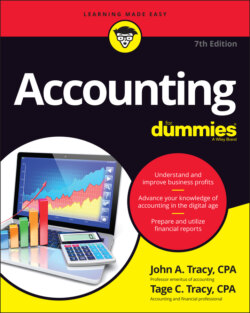Читать книгу Accounting For Dummies - John A. Tracy - Страница 56
Divorcing public and private companies
ОглавлениеTraditionally, GAAP and financial reporting standards were viewed as equally applicable to public companies (generally large corporations) and private companies (generally smaller). For some time, private companies have argued that some of the standards issued by the FASB are too complex and burdensome for private companies to apply. Although most accountants don’t like to admit it, there’s always been a de facto divergence in actual financial reporting practices by private companies compared with the more rigorously enforced standards for public companies. For example, a surprising number of private companies still do not include a statement of cash flows in their financial reports, even though this has been a GAAP requirement for 30 years.
Although it’s hard to prove one way or the other, our view is that the financial reports of private businesses generally measure up to GAAP standards in all significant respects. At the same time, however, there’s little doubt that the financial reports of some private companies fall short. In fact, in the invitation to comment on the proposal to establish an advisory committee for private company accounting standards, the FASB said, “Compliance with GAAP standards for many for-profit private companies is a choice rather than a requirement because private companies can often control who receives their financial information.” Recently, a Private Company Council (PCC) was established; it’s separate from the FASB but subject to oversight by the FASB.
Private companies do not have many of the accounting problems of large, public companies. For example, many public companies deal in complex derivative instruments, issue stock options to managers, provide highly developed defined-benefit retirement and health benefit plans for their employees, enter into complicated intercompany investment and joint venture operations, have complex organizational structures, and so on. Most private companies don’t have to deal with these issues.
Finally, we should mention in passing that the AICPA, the national association of CPAs, has started a project to develop an Other Comprehensive Basis of Accounting for privately held small and medium-sized entities. Oh my! What a time we live in regarding accounting standards. The upshot seems to be that we’re drifting toward separate accounting standards for larger public companies versus smaller private companies — and maybe even a third branch of standards for small and medium-sized companies.
